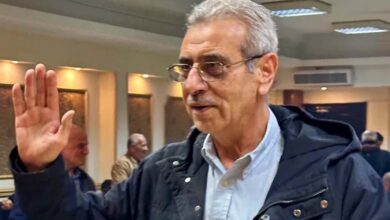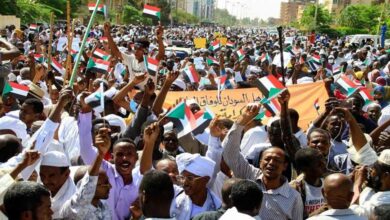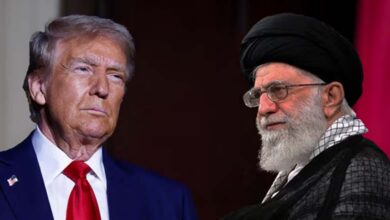Collapse of 9/11 Mastermind’s Plea Deal: Justice Hunts the Architect of Terror

In a landmark decision that ends years of legal wrangling, a U.S. Court of Appeals on Friday annulled a plea deal reached between prosecutors and Khalid Sheikh Mohammed, the alleged mastermind behind the September 11, 2001 attacks, which would have allowed him to avoid the death penalty.
-
Similar to 9/11… Terrorist Plot Targeting U.S. Interests Uncovered
-
Saudi FM: Kingdom Has Always Demanded Declassification of All 9/11 Documents
Judges in Washington, D.C., rejected the agreement—which would have sentenced Mohammed and his co-defendants to life imprisonment without parole—in a 2-to-1 ruling.
The deal had sparked outrage among victims’ families, prompting former U.S. Secretary of Defense Lloyd Austin to revoke it last year, stating that the American people deserved to witness a trial.
-
“Revolution or catastrophe”? .. a decade on “February 11” and Yemen still bleeds
-
Henry Kissinger and Latin America: 5 Sins That Changed the Course of History
Dismissal of the Agreement
Judges Patricia Millett and Neomi Rao, who formed the majority, affirmed that Austin acted within his legal authority and refused to second-guess his judgment.
The plea agreements involving Khalid Sheikh Mohammed and fellow defendants Walid bin Attash and Mustafa al-Hawsawi were announced in late July 2023, seeming to signal long-awaited progress in cases that had been stalled for years.
All three remain detained at the U.S. military facility in Guantánamo Bay, Cuba.
-
Biden and the Trump Hat: A New Gaffe or a Noble Gesture?
-
Who is Amin al-Haq, Bin Laden’s Associate Arrested in Pakistan?
However, Austin rescinded the deals just two days after they were announced, asserting that the decision rested solely with him due to the gravity of the cases. He later declared: “The families of the victims, our military personnel, and the American public deserve the opportunity to see these trials take place.”
Although a military judge upheld the agreements in November 2023, ruling them enforceable, the U.S. government appealed.
On Friday, appellate judges reversed the military judge’s order from November 6, 2024, which had blocked the Secretary of Defense from withdrawing from the pretrial agreements.
-
After 10 Years, the United States Struggles with the Spread of Terrorism in West Africa
-
Geopolitical disruptions divert global attention from terrorist groups.
Legal and Ethical Complexities
Much of the legal debate has revolved around whether the 9/11 defendants could receive a fair trial, given their alleged torture by the CIA. The plea deals were seen as a way to sidestep this thorny issue.
Khalid Sheikh Mohammed, captured in Pakistan in March 2003, was a top aide to Osama bin Laden.
He spent three years in CIA “black sites” before being transferred to Guantánamo in 2006.
Often dubbed the “architect of 9/11”, he confessed to masterminding the attacks from start to finish, and was also allegedly involved in other major plots against the United States, where he had studied at university.
-
On the anniversary of Bin Laden’s death, is the end near for Al-Qaeda?
-
After the American report, how did the chaotic Western withdrawal lead to a disaster in Afghanistan?
Guantánamo as a Legal Exception
The Guantánamo Bay facility was created to detain suspects captured during the “War on Terror” in order to deny them access to standard U.S. legal protections.
It once housed around 800 detainees, the majority of whom have since been transferred to other countries. Only a small number remain today.












